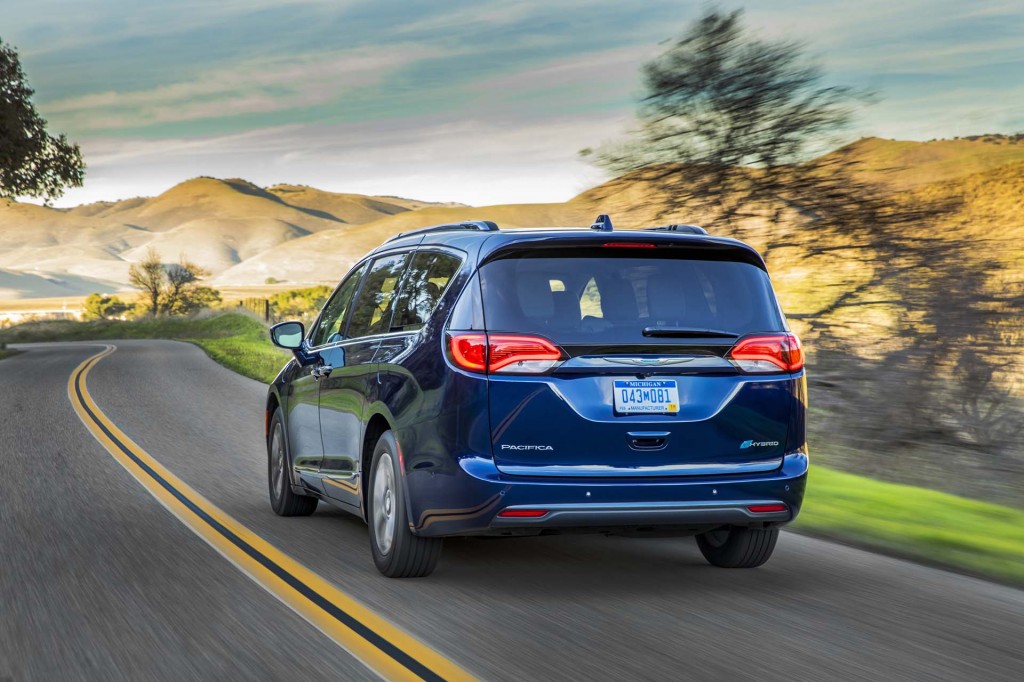- Chrysler issued a recall for about 24,000 2017 to 2021 Pacifica plug-in hybrid minivans
- The recall stems from an issue fire risk to due a battery-cell abnormality
- A free software update will be issued to fix the issue, but owners are asked to stop charging and park outside until the update
Stellantis on Thursday recalled about 24,000 Chrysler Pacifica Hybrid plug-in hybrid minivans globally due to a fire risk.
Reuters reports that Stellantis is advising owners of the affected vehicles to park outside and away from structures, and to avoid charging pending a software update to address the issue, which the automaker said was linked to a battery-cell abnormality.
2017 Chrysler Pacifica Hybrid
The recall population includes Pacifica Hybrids from model years 2017 to 2021, including about 19,500 vehicles in the U.S., about 3,000 in Canada, and 1,700 outside North America. The Pacifica Hybrid is the sole plug-in hybrid minivan on sale in the U.S., while the Pacifica itself is the only Chrysler-badged vehicle currently in production.
Stellantis is reportedly aware of seven incidents related to this issue, which occurred while the vehicle was turned off and, in some cases, while charging. Four customers also reported symptoms consistent with smoke inhalation, according to Reuters. The automaker believes the risk of fire is lower when the battery charge is depleted.

2017 Chrysler Pacifica Hybrid
Stellantis is working on a software update to detect the battery abnormality identified as the root cause of this issue. The automaker will notify customers when the update is ready, as well as when to have their minivans’ battery packs inspected and if, necessary, replaced by dealers free of charge.
This isn’t the first time Stellantis has recalled Pacifica Hybrid minivans and cautioned owners to refrain from charging. In 2022, the automaker recalled nearly 20,000 of the plug-in hybrids from model years 2017 and 2018 due to fire risk, releasing a fix later that year. The Pacifica Hybrid was also recalled due to fire risk in 2020, but this time due to a fault with the 12-volt accessory battery connection.
Read the full article here



